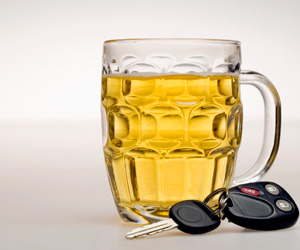 April 23, 2015 – The Wisconsin Supreme Court has ruled that an expert witness could testify about a driver’s blood alcohol level based on lab tests performed by an analyst who was unavailable to testify, despite the defendant’s right to confront witnesses.
April 23, 2015 – The Wisconsin Supreme Court has ruled that an expert witness could testify about a driver’s blood alcohol level based on lab tests performed by an analyst who was unavailable to testify, despite the defendant’s right to confront witnesses.
Michael Griep was convicted of operating a motor vehicle while intoxicated, his third offense. An analyst at the Wisconsin State Laboratory of Hygiene had performed the tests on Griep’s blood, which showed an illegal driving blood alcohol level of 0.152.
But that lab analyst was not available to testify at trial about the testing process and the results. Instead, the trial court allowed the Wisconsin’s State Laboratory’s section chief, Patrick Harding, to testify as an expert witness based on the lab analyst’s report.
He said the lab analyst, in his opinion, used proper lab procedures in testing the blood samples and the lab instruments appeared to be working properly.
Based on the analyst’s report, Harding concluded independently that Griep’s blood alcohol level was 0.152, although he acknowledged that testing errors could go undetected. He said inconsistencies in results are usually noted by the analysts.
Griep’s defense lawyer objected to Harding’s testimony, arguing that it violated Griep’s constitutional right to confront the witnesses against him. The trial court judge in denied Griep’s motion to exclude Harding’s testimony. An appeals court affirmed that ruling.
And in State v. Griep, 2015 WI 40 (April 23, 2015), the supreme court unanimously affirmed, concluding that Harding’s testimony did not violate the Confrontation Clause. However, in a majority and concurring opinions, the justices differed on reasoning.
Justice Patience Roggensack, writing for a majority, noted that the expert witness reviewed the lab analyst’s tests and formed his own independent opinion, which meets the requirements necessary for experts to testify about lab results performed by others.
The majority noted that Griep’s case is controlled by the Wisconsin’s Supreme Court’s 2002 ruling in State v. Williams, a similar case decided in 2002, and subsequent Confrontation Clause rulings by the U.S. Supreme Court do not change the result.
In Williams, the supreme court allowed expert testimony that was based on the work of others, because the expert examined the data and reached an independent conclusion.
The U.S. Supreme Court decided several Confrontation Clause cases since Williams, but those cases involved the admissibility of forensic reports, DNA samples, or out-of-court statements made by persons who were not available to testify at trial.
For instance, in Bullcoming v. New Mexico, 131 S. Ct. 2705 (2011), the U.S. Supreme Court ruled that admitting forensic laboratory reports without an opportunity to cross-examine the report’s author was unconstitutional. But that wasn’t the case here.
“Bullcoming does not guide our decision when the issue is the independent opinion of an expert witness who has reviewed the forensic test results, rather than the admissibility of an underlying forensic report,” Justice Roggensack explained.
The supreme court majority also distinguished a 2012 U.S. Supreme Court case involving a DNA sample, where an expert testified to prove the chain of custody, noting that the defendant there was not in a substantially identical position as Griep.
“We conclude that Harding’s review of Griep’s laboratory file, including the forensic test results of an analyst who was unavailable for trial, to form an independent opinion to which he testified did not violate Griep’s right of confrontation,” Roggensack wrote.
Concurrence
Chief Justice Shirley Abrahamson, joined by Justice Ann Walsh Bradley, found no constitutional violation but wrote separately to “bring the goal of the Confrontation Clause back into focus,” noting fractured decisions in the area.
Abrahamson did not view Harding’s expert opinion as “independent,” but concluded that his substitute expert testimony satisfied the Confrontation Clause.
She said “cross-examination of a substitute expert witness who fails to provide an independent opinion constitutes a permissible alternative to cross-examination of the analyst who performed the forensic test at issue,” if a number of conditions are met.
The analyst must be unavailable and retesting impossible, the chief said. In addition, the analyst must perform the forensic test in the course of performing numerous tests and probably would not remember the specifics of performing the test at issue.
Chief Justice Abrahamson would also require a showing that the analyst recorded the testing process so other experts could understand and interpret the results with evidence that substitute expert is qualified to discuss and interpret the results.
“Because these conditions appear to have been met in the present case, I conclude that Harding’s substitute expert testimony fulfills the minimum requirements of the Confrontation Clause,” she wrote. “Thus, like the majority opinion, I would allow it.”
Justice David Prosser withdrew from participation in the case.
